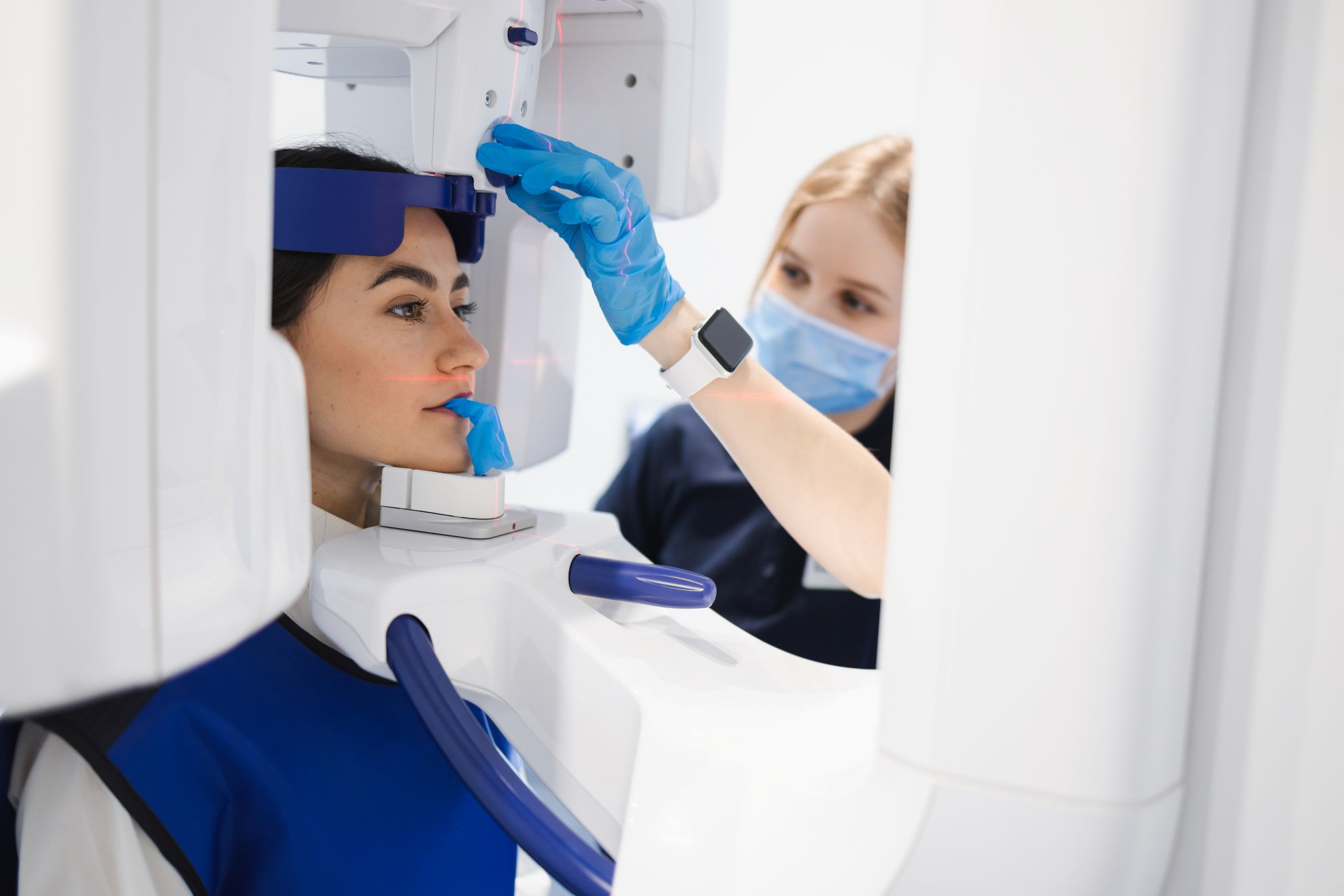Has your dentist or hygienist ever recommended an X-ray during one of your dental checkups? Whether it’s the bitewings inserted into your mouth or the large machine that rotates around your entire head, it’s natural to wonder what exactly these X-rays do, and whether they are necessary and safe. Let’s explore some common dental X-rays and their safety.
What is a dental X-ray?
Dental X-rays are essential diagnostic tools that provide dentists with insight into what’s happening beneath the surface of your teeth and gums. They allow the dentist to see beyond what is visible during an exam to help detect damage or disease before it escalates into a bigger problem. X-rays help to detect issues like cavities, particularly between teeth or under fillings; bone loss due to gum disease; impacted teeth; abscesses or cysts; and tumors or other abnormalities.
There are several types of dental X-rays. These can include:
- Bitewing X-rays, which show the back teeth from the chewing surface to the bone near the gumline.
- Periapical X-rays, which allow your dentist to see an entire tooth from the crown to the tip of the root.
- Panoramic X-rays, which provide a view of your entire mouth in a single image.
- Cone-beam computed tomography (CBCT), which allows the dentist to take a series of pictures to create a three-dimensional image.
Are dental X-rays safe?
According to the American Dental Association (ADA), X-rays emit very low doses of radiation. Dental technology and equipment are also designed to limit your body’s exposure to radiation. The Cleveland Clinic explains that the amount of radiation you get from a dental X-ray is comparable to that of a TV or smartphone. Still, the ADA recommends using X-rays only when they will provide the necessary diagnostic information to help you reach your best dental health.
What if I have questions about X-rays?
Dental X-rays are a valuable tool for maintaining oral health, providing a window into areas that are not visible during a routine examination. While dental X-rays have a very low risk associated with radiation exposure, it’s natural to have questions. If you have any concerns about X-rays, please don’t hesitate to discuss them with our team at your next appointment!
Source link

